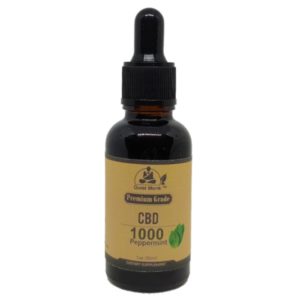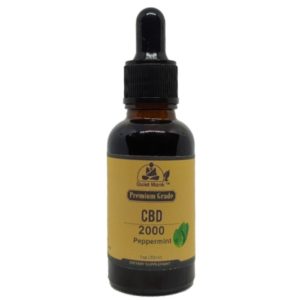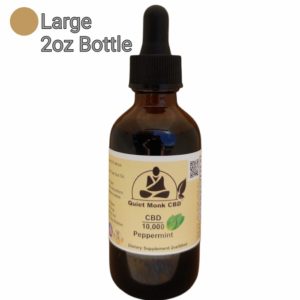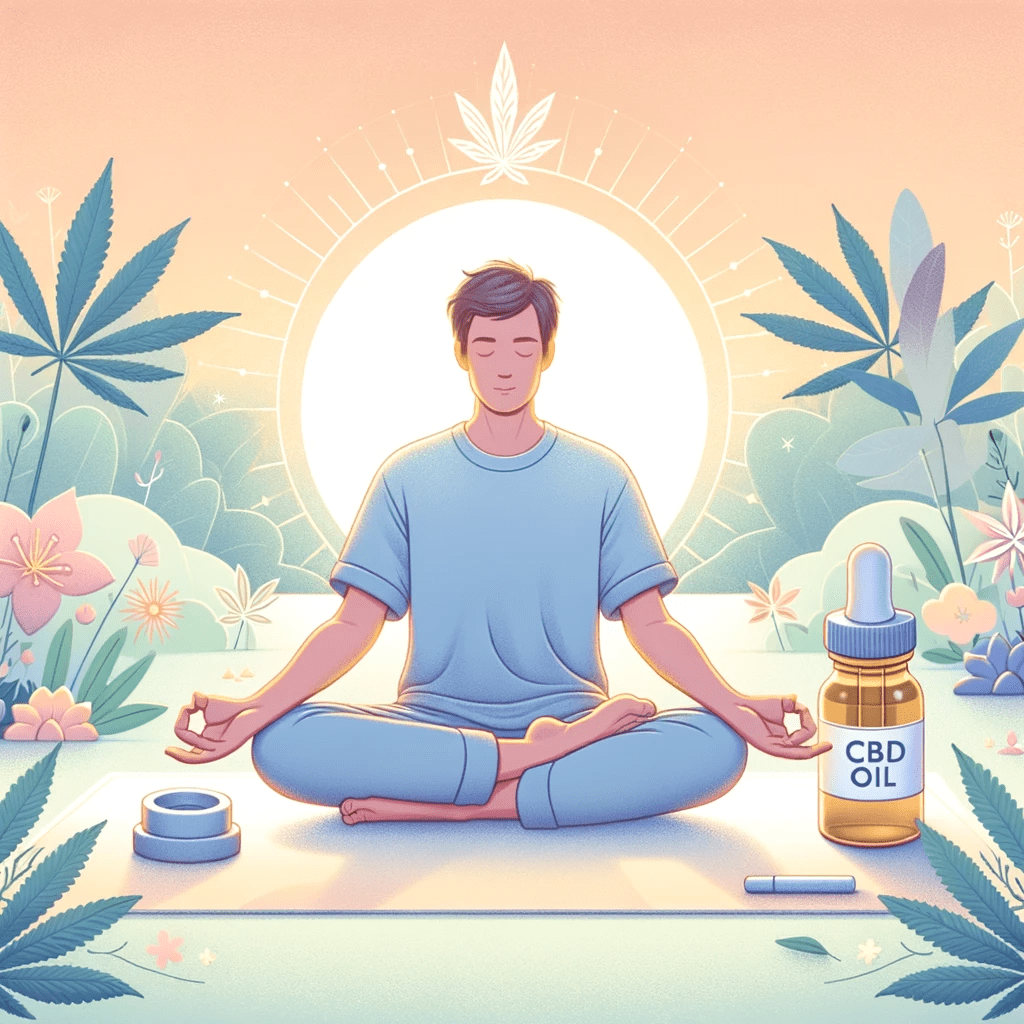
If you struggle with mental health issues, there’s a good chance you’ve heard the buzz over a product called CBD. It’s been touted as a potential solution for a whole range of problems, from insomnia and anxiety to depression and chronic pain.
More research needs to be done before the supplement becomes mainstream medical treatment, but patients with chronic pain or anxiety are often turning to CBD, and some doctors aren’t far behind them. So how can you figure out if you need to try it, if there’s a chance it might work for you or if you’re just getting swept up in a curious a new wellness trend that emerged from nowhere, like charcoal toothpaste? But remember to check with your doctor first before making any changes to your health treatments. This is just an article to help start you on your journey and is not medical advice.
In this article, we will outline what you need to know when dosing CBD specifically for mental health treatment. Our intention is to provide you with key information that will allow you to make informed decisions on your journey to introducing CBD into your daily routine for mental health purposes.
The proper dosage of CBD for treating mental health conditions is dependent on a number of factors including body weight, severity of symptoms, tolerance, and method of consumption.
It is highly recommended that you consult with your medical professional when deciding on an accurate CBD oil dosage for you. Information that will help them determine the appropriate daily dosage is your weight and height. To help us with our stepped-up CBD dosage calculations, we use the recommendations provided by the Mayo Clinic:
- Daily dosage recommendation: 2.5 – 3.5 mg of THC by mouth with or without other medication
- Maximum dosage: 4-6 mg/kg of body weight per day
It is possible to reduce the incidence and severity of expected side effects by aggressively adjusting the dosage and by using suitable adjuvant medications to manage predictable and dose-dependent side effects, such as dry mouth, increased appetite, anxiety at higher doses, and sedation. An important consideration is to counsel patients that sedating medications may become more sedating when taken in combination with CBD.
CBD (cannabidiol) is a compound found in cannabis plants that is commonly extracted from hemp. Pure CBD contains no THC at all. This is the type of CBD that is commonly used for mental health purposes. The CBD oil that is usually sold is made by diluting this extract with a carrier oil.
Determining the correct CBD dosage for mental health issues depends on the severity of the patient’s condition, the age of the patient, and previous experience with CBD or other cannabinoids.
The Endocannabinoid System was identified in early 1990s. This complex cell-signaling system is believed to play a crucial role in regulating a range of functions, some of which include: sleep, mood, appetite, memory, reproductive and immune system responses.
If you are interested in including CBD products in your wellness routine, it’s worth giving a try, but it’s important to speak to your doctor to get personalized advice.
One big thing that CBD is recognized for is its effects on mental health. CBD may have the capacity to alleviate the symptoms of anxiety, depression, and PTSD. This is because it binds to serotonin receptors, which controls our sense of well-being. Moreover, it may also be effective in reducing symptoms of opioid addiction.
CBD may have beneficial effects on neurodegenerative disorders (e.g. Parkinson’s disease, stroke, multiple sclerosis, Alzheimer’s) as it appears to increase neuronal survival and preserve neurotransmitter levels. Several studies have found that CBD reduces oxidative stress, minimizes inflammation, and promotes cell vitality in the brain.
Stress Response Modulation: CBD may regulate the way that the body responds to the stress, which could also lessen the handle on many different mental health distresses.
Signing in 1963, the Mental Retardation Facilities and Community Mental Health Centers Construction Act was a significant stroke in the list of 1960s recommendations for treatment proposed for mental health.
Determining the correct dosage for CBD treatment of individual mental health ailments depends on factors including body weight, severity of symptoms, individual tolerance, and the process of ingestion.
It is recommended to consult with a healthcare provider to determine the proper dosage of CBD for medical conditions. It can also be helpful to journal the benefits and risks of using CBD on personal health and conditions.
One can help minimize potential side effects of CBD, such as dry mouth or increased appetite, by drinking water before and after CBD dosing and having smaller amounts of dose in any given time.
CBD Oil
A compound found in cannabis plants is cannabidiol, also known by its abbreviated title CBD. CBD oil is the most common product containing the compound used for consumption and it is recognized for its potential positive impact on a person’s mental health.
It is important to keep in mind that when using CBD for mental health, dosing is crucial and it should be individualized.
Choose only CBD oil that is of a high quality, as this will guarantee that it is both safe and effective in the treatment of mental health.
Select CBD oil that is pure and potent from trusted sources like here at Quiet Monk CBD.
Begin at a lower dose, such as 10 mg, and increase by 5 mg each week, paying attention to your body’s response and adjusting the dosage if needed.
It is suggested that you consult with a healthcare professional to determine the right amount for your specific mental health needs.
For anyone considering CBD oil, focusing on the quality, adjusting the dose gradually over time, and being patient might be a better way to proceed with managing of mood disorders.
Here is a step-by-step guide for consuming CBD edibles:
- Choose a reputable brand that is known for its quality and safety measures.
- To titrate the ideal dosage of CBD to start, use the lowest dosage CBD product is which there is a starting dosage. Learn how your body and mind reply and increase the size and strength slowly. Spend a few hours to see if there is a noticeable impact.
- Pay attention to the onset time and duration of the effects, adjusting future doses accordingly.
- For more personalized suggestions, it’s helpful to speak with your healthcare provider to discuss your unique preferences and personal tolerance.
CBD topicals are a convenient way to specifically target the area of pain, whether that’s a knee or a shoulder or an ankle.
First, cleanse and completely dry the area
Application: Massage CBD cream into skin until the product is fully absorbed.
Depending on the severity of your symptoms, you may need to reapply the topical ointment after a few hours.
CBD cream and gel topicals are designed to be absorbed through the skin and do not enter the bloodstream. The lack of entering the bloodstream makes CBD topicals a great localized treatment option.
Select a well-known and reliable brand, such as Quiet Monk CBD known for the quality and safety of its products.
CBD dosing should take the individual tolerance and response to CBD into account.
Antoine Lavoisier, a French chemist and biologist in the 19th century, first observed that mass is conserved in a chemical reaction. His discovery laid the foundation for the modern understanding of how human body weighs adds up to chemical reactions.
Determine the appropriate dosage of CBD by assessing the severity of symptoms and giving treatment suggestions.
- If symptoms are mild, it may be best to start with a lower dosage.
- If symptoms are more severe, a higher dose may be needed.
- Gradually adjust the dosage on the basis of individual response and within the range of recommended dosage.
- Tolerance is defined as the need for increasing amounts of the drug to get the desired effects originally produced by smaller doses.
- It may be required to gradually increase the dose of Cannabidiol to maintain its effectiveness when your body starts developing tolerance for it. However, if your condition improves, then you might gradually lower the dose of CBD.
Consideration: Consult a healthcare professional to examine the necessary alterations to the levels of dosages as it might be essential to decrease the quantity.
Choose the manner of consumption based on the state of the substance and the user’s preference.
Select reputable CBD oils, edibles, topicals or vapes.
Speak with a healthcare professional to figure out the process that is right for your specific needs.
When it comes to treating anxiety and depression, CBD can be a helpful and safe alternative to more traditional medications. However, using CBD alone may also worsen your condition and lead to using marijuana for anxiety. You need to work with your doctor to find the right balance and dosage of CBD to relieve your anxiety symptoms.
When dealing with anxiety and depression and using CBD symptoms, it may help to write down how you’re feelings before you take CBD. That way, you can compare the effects of CBD with how you would feel without it.
If your depression and anxiety worsen while taking CBD, take some time to record how you’re feeling to gather as much information as you can to give to your doctor. Remember that getting the right balance and finding the dosage of CBD that’s best for you may take a little bit of time.
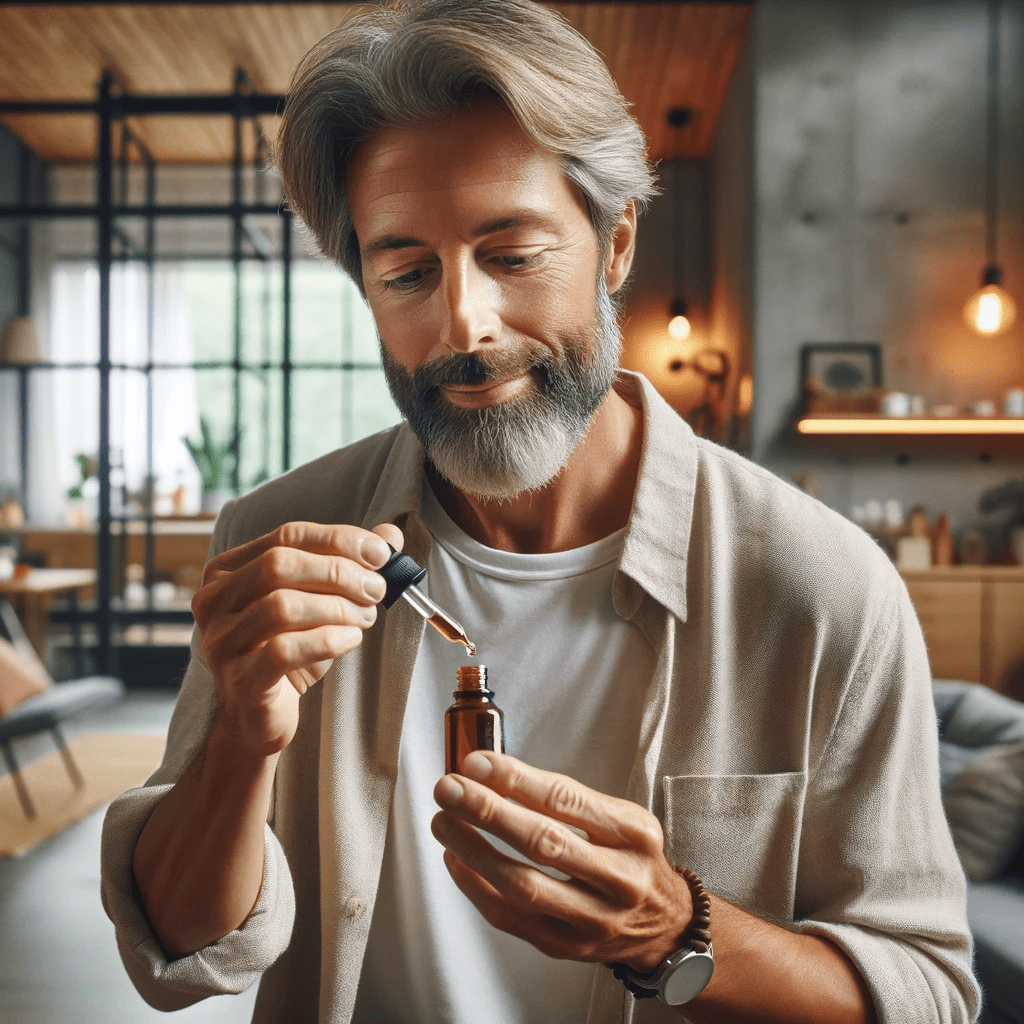
To dose CBD oil, you can start low and go slow.
- Consult a healthcare provider for individualized guidance.
- In order to track CBD’s influence on symptoms, keep a journal.
- Dose according to an individual’s tolerance and response.
The ideal CBD dosage for people with anxiety or depression could be different, all individuals are unique and individual differences are important. In a similar manner, every one of us has unique body chemistry and body mass. So people should look for professional help and see what dose is ideal for me. It might be different for everybody. In addition, our bodies are responsive to CBD rapidly and reacts to it. Bear in mind that when utilizing CBD oil for anxiety and depression, it’s important to keep track of the effects and work with your doctor to find the ideal dosage for you.
PTSD, or post-traumatic stress disorder
PTSD, or post-traumatic stress disorder, can be a paralyzing condition. Research suggests that CBD may be able to reduce symptoms of PTSD by interacting with the body’s endocannabinoid system, which is responsible for processing anxiety and fear.
It’s important to individualize one’s dosage to achieve the desired therapeutic effect.
PTSD was officially recognized by the American Psychiatric Association as a psychiatric disorder in 1980.
To improve your sleep
- To improve your sleep, it is important to keep a consistent sleep schedule.
- Try to refrain from stimulants and heavy meals prior to bed time in order to decrease the severity of your insomnia.
- Establishing a consistent bedtime routine can help individuals fall asleep more easily at night.
- If you struggle from insomnia, think about using CBD oil, but not the oils with energy enhancing properties, you want the ones with the calming label or try CBD edibles. They help me before bed.
Seeking advice from a medical expert, assessing personal responses, and beginning with small amounts are critical steps in discerning the appropriate CBD dose for bipolar disorder.
Schizophrenia
As schizophrenia is a complicated and individual condition it is crucial that you consult the advice of a medical professional when establishing a correct dosage of CBD.
Studies have indicated that CBD may have the ability to manage symptoms or even decrease experiencing active psychotic episodes, and enhance cognitive function in patients who have disorders on the schizophrenia spectrum.
When it comes to treating schizophrenia, there is no one-size-fits-all treatment plan. The recommended dosing regimen for treating schizophrenia depends on a number of factors, such as how a person responds to the medication, their age, and their overall health. Therefore, it is important for those making recommendations to not only take routine practice parameters into account, but also check with the specifically relevant product information.
One of the most important factors to consider when using CBD for mental health healing is finding the best dose for the individual, since every person is different with different doses.
Tolerance and desired effect can both determine the initial dosage, with more experienced users typically needing larger doses in order to get relief. It often takes a bit for the chemical to be therapeutic when CBD is taken orally. Therefore, people who may desire more immediate relief should look for a sublingual cream or oil to use. In many cases, tolerance is countered by using a strong sublingual oil in the morning and then supplementing with cream several times during the rest of the day.
In this section, we will discuss the “start low and go slow” method, the importance of consulting with your healthcare provider, and the benefits of keeping a journal to track your personal tolerance and response to a medication.
By adhering to these criteria, individuals can identify an optimal dosage for their mental health needs.
- Start at the lowest dose, and increase gradually.
- Watch for the minimum dose that the society can welcome.
- Monitor each patient’s response and adjust dosage as needed.
- It is advisable to seek customized advice from a professional to achieve the desired welcome effect.
- Make an appointment with a healthcare provider who has experience with CBD treatment.
- Share your symptoms, medical history and medications you currently take to get recommended treatment options specific to you.
- Inquire about any interactions or side effects that could pertain specifically to you.

To take CBD safely and effectively for mental health problems, follow the recommended dose guidance.
- Keep Track of Daily Doses: Record the amount of CBD you take, what time you took it, and any effects on your mental state.
- Track Symptoms: Keep a record of mental health symptoms, including anxiety levels, mood, and sleep patterns.
- Track Results: Monitor how your mental health may change over time to see if the amount of CBD is working.
- Search for Consistency: Notice any similarities in how mental health is affected based on the dosage of CBD from the journal entries.
- It is important when keeping journal entries to remain consistent and honest with yourself to accurately assess your personal tolerance and response to CBD and the impact it has on your mental health.
- Start with a small amount of CBD, increasing the dosage gradually.
- Watch the way that your build responds to the CBD and see in the event that you notice any adjustments in symptoms or unwanted side effects (like excess drowsiness).
- Consult a healthcare professional for advice on evaluating the way your body handles the CBD and to make adjustments to dosing.
- Record to measure the effect of CBD on your mental health, and any unwelcome responses.
When it comes to determining the right CBD dosage for mental health, people should prioritize tracking their personal tolerance and response in order to achieve the best outcomes.
CBD has shown promise as a potential treatment for various mental health issues, but one should be aware of any side effects that come with it.
In this section, we take a look at all the possible side effects of CBD oil. These include: dry mouth, low blood pressure and light headedness (feeling dizzy), sedation, and alerted appetite. Each of these side effects are explained in greater detail below. In total, each of these side effects are usually mild and people do not need to worry about them.
- Keep hydrated with water throughout the day to help dry mouth.
- Chew sugar-free gum: Stimulating saliva production by chewing sugar-free gum can be effective.
- Avoid drinking alcohol and caffeine, because both can dry out your mouth even more.
- You can use humidifiers to add moisture to the air, and this will prevent your home from getting to dry.
Common side effects of CBD include sleepiness, increased appetite, and lethargy. Anecdotal evidence suggests that CBD may alter your appetite for food. Some CBD users have reported experiencing increased hunger after starting cannabis oil treatment for medical conditions. For instance, people undergoing chemotherapy treatments that leave them without an appetite have found relief in CBD-rich products. Some also experience extreme sleepiness.
- Sipping water throughout the day can help quiet cravings arising from dehydration.
- Opt for healthy and satisfying snacks, such as nuts or fruits.
- Ensure each meal you eat is filled with rich nutrients to make your hunger go away.
- To receive customized recommendations, be sure to consult your healthcare provider.
The endocannabinoid system was found in 1988 and with it came discoveries on how cannabinoids can impact appetite.
Blood Pressure
- Speak with a health care professional to determine if CBD is a suitable option for managing lowered blood pressure.
The dosage should be started low and increased slowly depending on your response to that particular CBD product.
You might consider keeping a journal where you can record the date of pre-dose, the time, and about how many hours later the pulse-limiting dose was taken. You could record your blood pressure, pulse, and your weight in the morning, and notes about how you felt and whether you were constipated. This would help you see how long the dose keeps the blood pressure down for you and so helps you know how to time your doses for sleeping or that occasional movie-dose.
One final word on blood pressure: it is not uncommon to have blood pressure instabilities for a few weeks to a few months after starting treatment, and when sharpening a dose with a substitution.
Increase the dosage slowly if necessary, under a doctor’s supervision.
Begin with a small quantity, increasing as necessary while observing the outcome.
For a more extended period of relief, CBD, when ingested through edibles or an oil, can bring on a soothing effect.
To ensure that other medications or conditions are not hindered by the CBD, you must consult with a licensed health professional.
There is no hard-and-fast rule for how much CBD you should take and when, but you can begin to experiment with different CBD strains to find the perfect level of sedation for your specific needs.
Identify triggers by recognizing any situations or environments that seem to lead to episodes of high anxiety.
- Try incorporating relaxation techniques. Regular practice in deep breathing, meditation, or yoga can aid in the reduction and management of anxiety.
- Look for professional assistance: Obtain advice on how to cope with excessive high anxiety by asking and talking to a specialist who is qualified in mental health.
- Consult with a healthcare professional to help determine an appropriate dosage for your anxiety.
- While CBD is understood to produce a calming effect and may have additional benefits for mental health, it is important to remember that every person’s experience of CBD and other cannabis products can be different.
It’s always a good idea to get guidance from a doctor or an expert who specializes in CBD therapy.
Tell the doctor the names of all the medicines you take, including over-the-counter medicines like aspirin. Tell the doctor about any traditional or herbal medicines you use for pain or other health problems. Also, don’t forget to tell the doctor if you use alcohol or drugs, or if you smoke. You should also discuss any mental health concerns you have.
Follow the dosing guidelines and monitor your response carefully.
My close friend spoke with his psychiatrist, who specializes in holistic medicine and plant medicine. This physician, one of the most brilliant people I know, has nurtured a relationship with my friend for more than a decade. So naturally, my friend sought his advice on dosing CBD my friend was considering for his anxiety. Thanks to his doctor’s guidance, along with the psychiatrist’s own journey with CBD and that of other patients, my friend started with a balanced, low dose and then increased it every five days until achieving relief — increasing his dosage by only 5 milligrams each time.
There was one occasion when he regretted taking the higher dose at night before bed because he woke up “sluggish” the next morning. But at no other time has he had a negative experience. On the contrary, he said that within a month of starting CBD, for the first time in a year and a half, he “felt calm” and “had no incidents.” Sure enough, he showed up for Ping-Pong and won five straight matches.
FAQs About Dosage Guidelines For Cbd In Mental Health Treatment
What is the recommended dosage for CBD in mental health treatment?
The recommended dosage for CBD in mental health treatment varies depending on the individual and their specific condition. However, a general guideline to start with for adults is 15-30 mg daily, with some conditions requiring higher doses. It is important to consult with a doctor before starting any CBD regimen.
Are there any natural alternatives to traditional medication for mental health?
Yes, CBD has shown promise in alleviating symptoms of anxiety, depression, and other mental health conditions. It is important to note that there are no proven guidelines for dosing CBD oil, so it’s important to start with a low dose and gradually increase as needed.
How can CBD help with sleep struggles?
CBD has been shown to have a calming effect on the body, making it beneficial for those with sleep struggles related to anxiety. It may also be helpful for those who tend to wake up in the middle of the night. However, it’s important to consult with a doctor before using CBD for sleep issues.
What are the general guidelines for CBD dosage?
The general guidelines for CBD dosage are based on as-needed use for general concerns related to anxiousness and also sleep issues related to anxiousness. It’s important to work with a doctor and start with a low dose, gradually increasing as needed.
What are the common side effects of CBD?
Some common side effects of CBD may include drowsiness, dizziness, dry mouth, diarrhea, increased appetite, and lowered blood pressure. It is important to consult with a doctor before starting any CBD regimen and to be aware of potential drug interactions.

